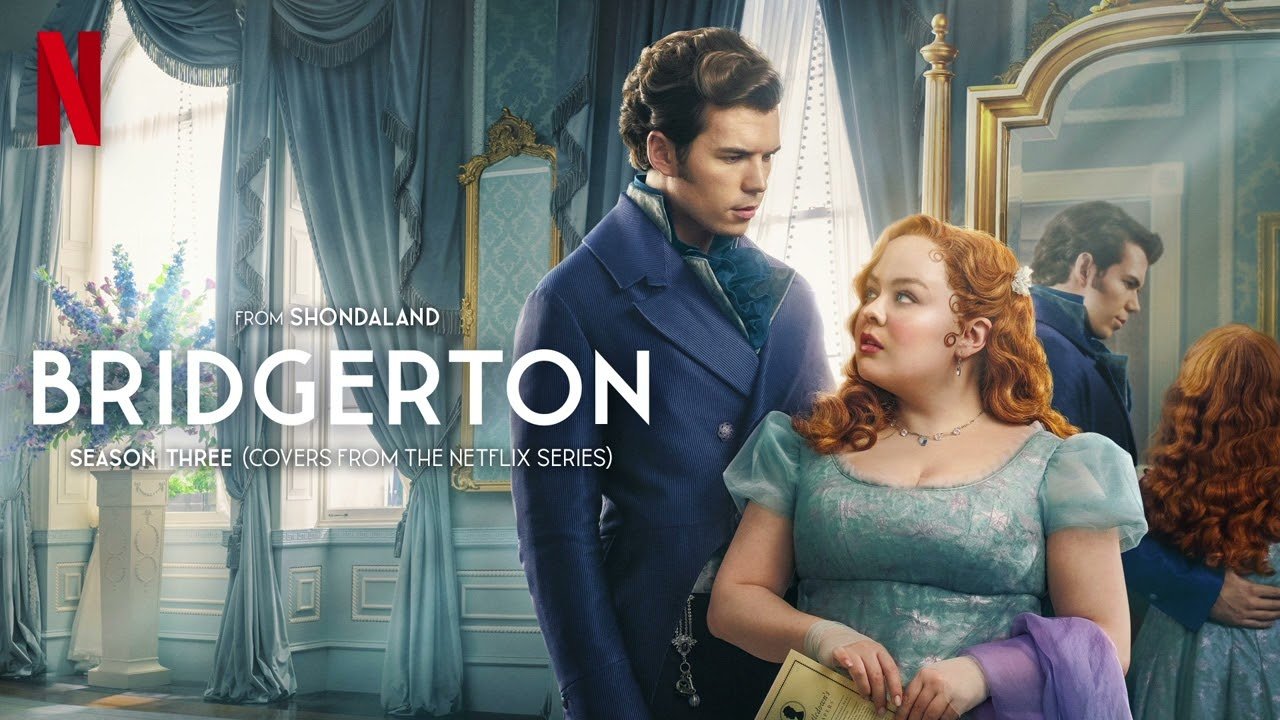Bridgerton: The Regency Era Meets Modern Sensibilities
“Bridgerton,” a Netflix series created by Chris Van Dusen and produced by Shondaland, has captivated audiences since its debut in December 2020. Based on Julia Quinn’s popular book series, the show merges the elegance of Regency-era London with contemporary storytelling, creating a unique blend of historical romance and modern sensibilities.
The World of Bridgerton
Set in the early 19th century, “Bridgerton” plunges viewers into the high-society world of London’s elite. The series is a vibrant portrayal of the social intricacies and scandals of the Regency era, centered around the Bridgerton family—a wealthy and influential clan navigating love, politics, and personal challenges.
The show’s visual style is one of its standout features. With its sumptuous costumes, opulent sets, and striking color palettes, “Bridgerton” delivers a feast for the eyes. The series effectively uses these elements to not only evoke the period but to also enhance its modern, often subversive, narrative.
A Modern Take on Historical Romance
One of “Bridgerton’s” most notable aspects is its blending of historical context with modern storytelling techniques. The show injects contemporary language, music, and social commentary into its Regency setting. For instance, the soundtrack features modern pop hits reimagined as classical pieces, bridging the gap between past and present in an innovative way.
The series also addresses social issues with a modern perspective. Its diverse casting choices and the incorporation of progressive themes around gender and race stand out in a genre often criticized for historical inaccuracy and lack of inclusivity. This approach has garnered praise for making the Regency world feel more relevant to today’s audiences.
The Characters
At the heart of “Bridgerton” are its compelling characters. The Bridgerton family, led by the widowed Violet Bridgerton and her eight children, is central to the narrative. Each season focuses on a different Bridgerton sibling, exploring their romantic entanglements and personal growth.
Daphne Bridgerton, portrayed by Phoebe Dynevor, takes center stage in the first season, where her debut into London society and her tumultuous relationship with the Duke of Hastings, Simon Basset (Regé-Jean Page), drive much of the plot. Their chemistry and the exploration of societal expectations around marriage are key elements that resonate with viewers.
The second season shifts focus to Anthony Bridgerton (Jonathan Bailey) and his pursuit of love, while the third season delves into the romance of Benedict Bridgerton and Sophie Beckett (Claudia Jessie). Each character’s journey is marked by personal struggles and growth, adding depth to their romantic endeavors.
The Mysterious Lady Whistledown
A crucial and intriguing element of “Bridgerton” is the mysterious Lady Whistledown, an anonymous gossip columnist whose scandalous revelations and sharp observations drive much of the plot’s drama. Voiced by Julie Andrews, Lady Whistledown’s presence adds a layer of intrigue and serves as a commentary on the social dynamics of the time. Her identity is a recurring mystery that intertwines with the personal lives of the characters, creating suspense and drama throughout the series.
Reception and Impact
“Bridgerton” has been met with widespread acclaim for its engaging storytelling, diverse representation, and high production values. The show’s success has sparked a renewed interest in Regency-era dramas and has influenced other series and films in the genre. Its blend of historical romance with modern elements has set a new standard for period dramas, demonstrating that there is room for innovation within traditional storytelling frameworks.
The series has also prompted discussions about historical accuracy and representation in period dramas, encouraging a more inclusive and nuanced approach to storytelling. “Bridgerton” has shown that historical fiction can both respect its source material and address contemporary issues, making it relevant to a modern audience.
Conclusion
“Bridgerton” is more than just a historical romance series; it is a cultural phenomenon that has redefined the genre. By fusing the elegance of the Regency era with modern storytelling techniques and inclusive representation, the show has created a captivating and relevant viewing experience. With its rich characters, engaging plots, and innovative approach, “Bridgerton” continues to enchant audiences and set the stage for future successes in period drama.
